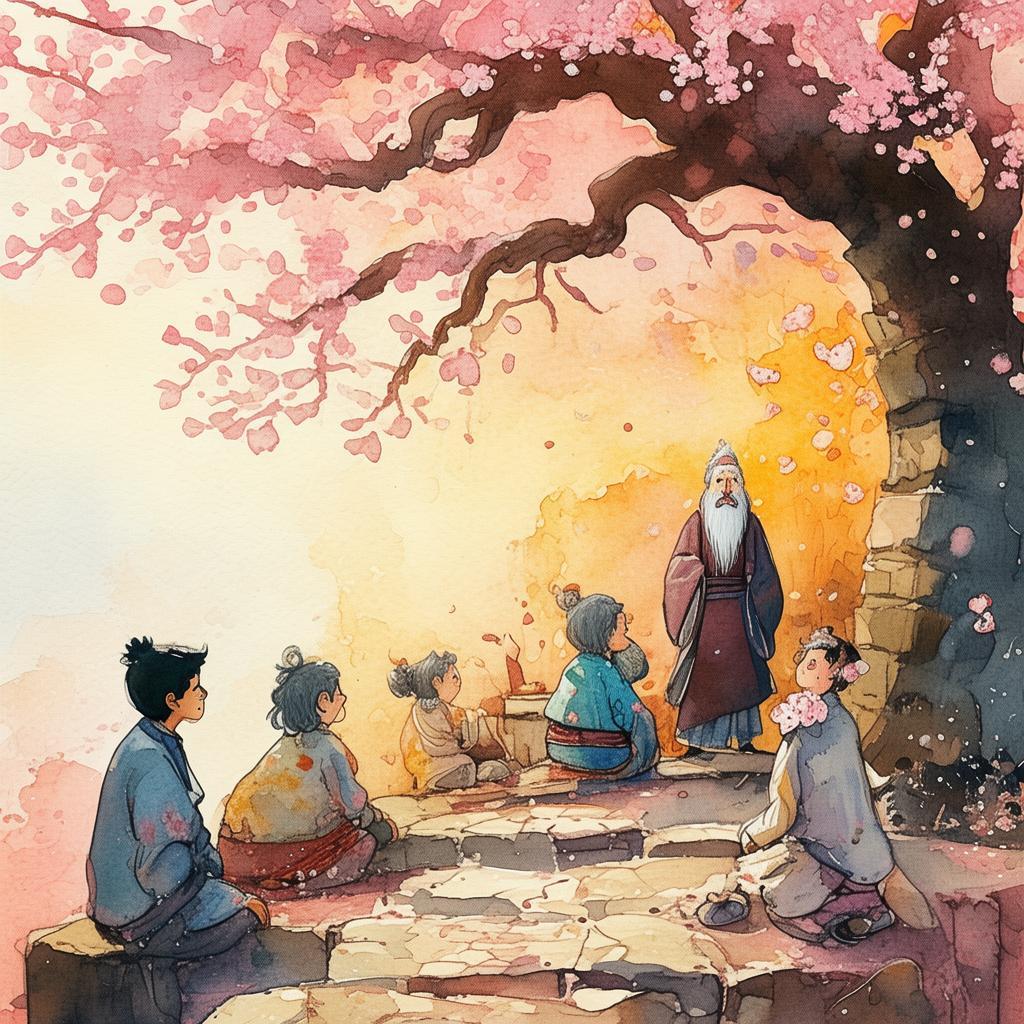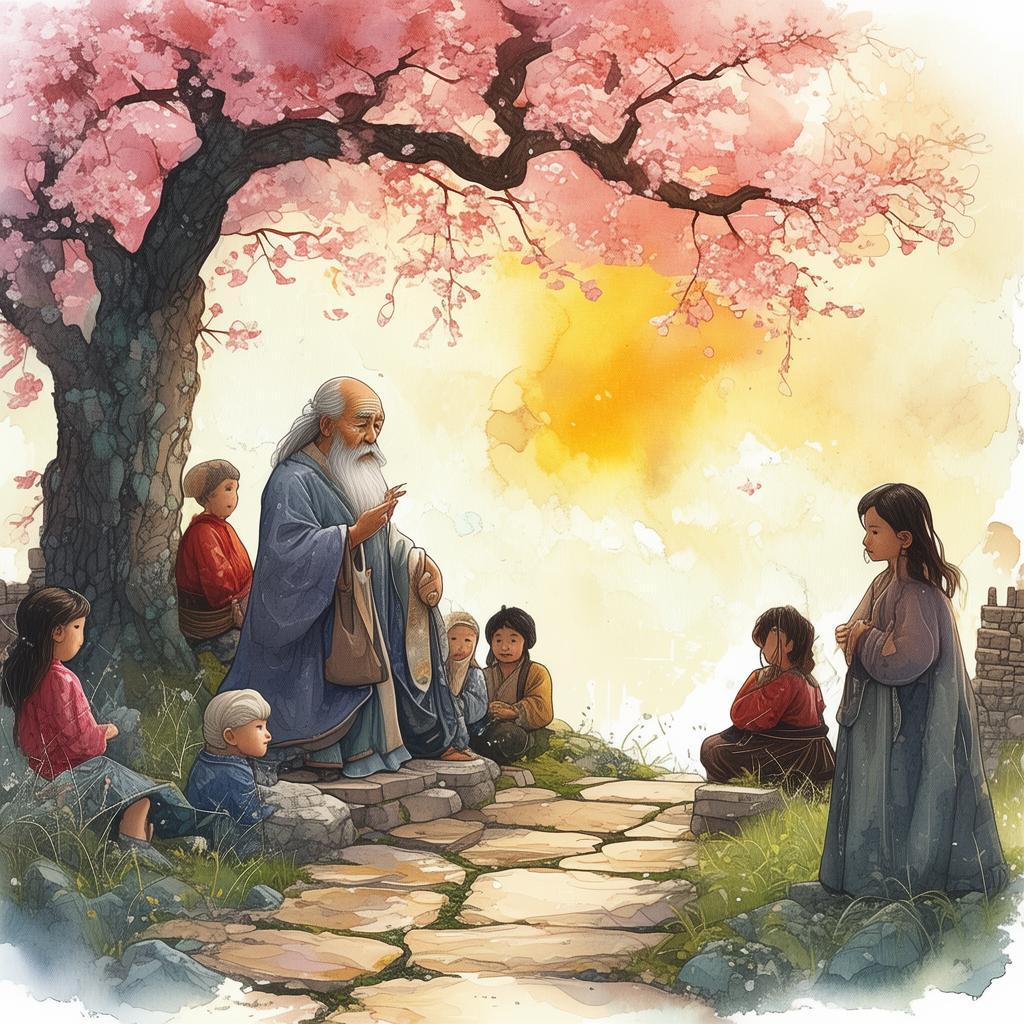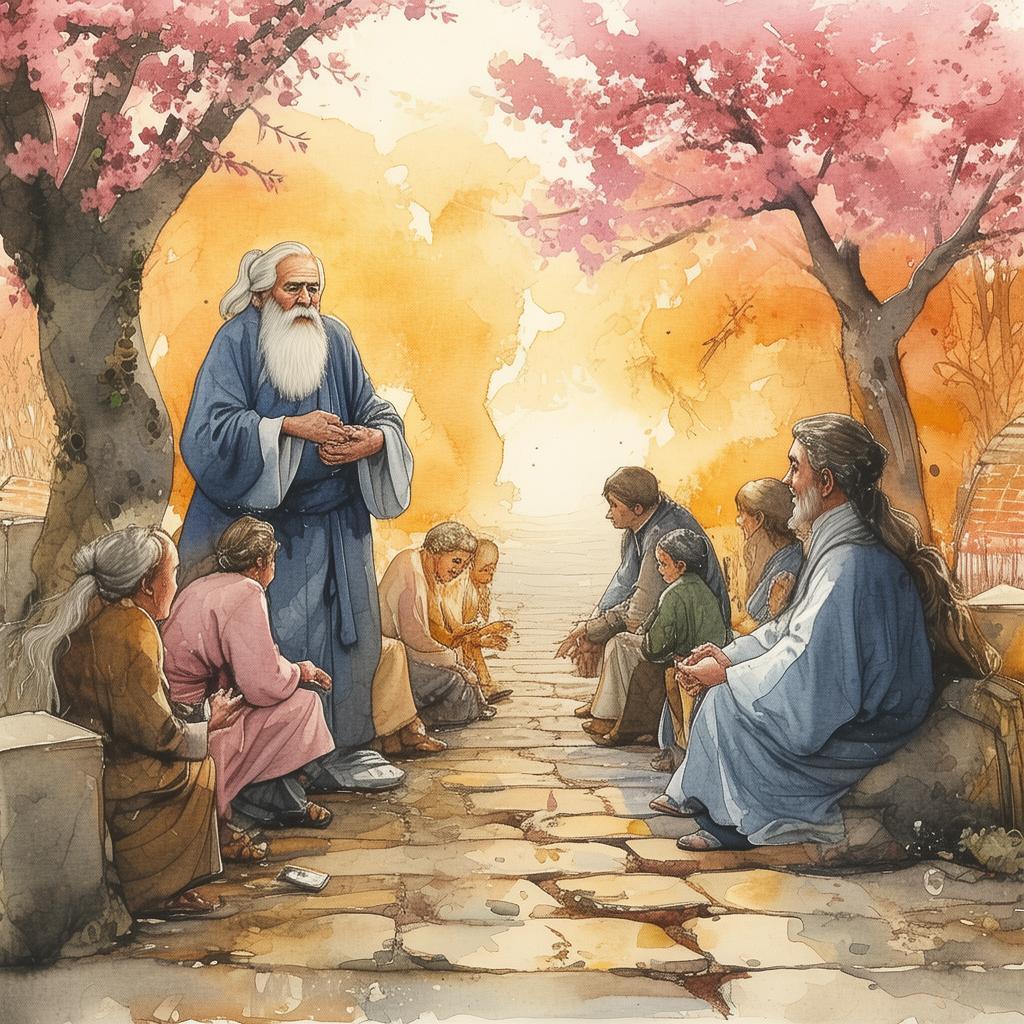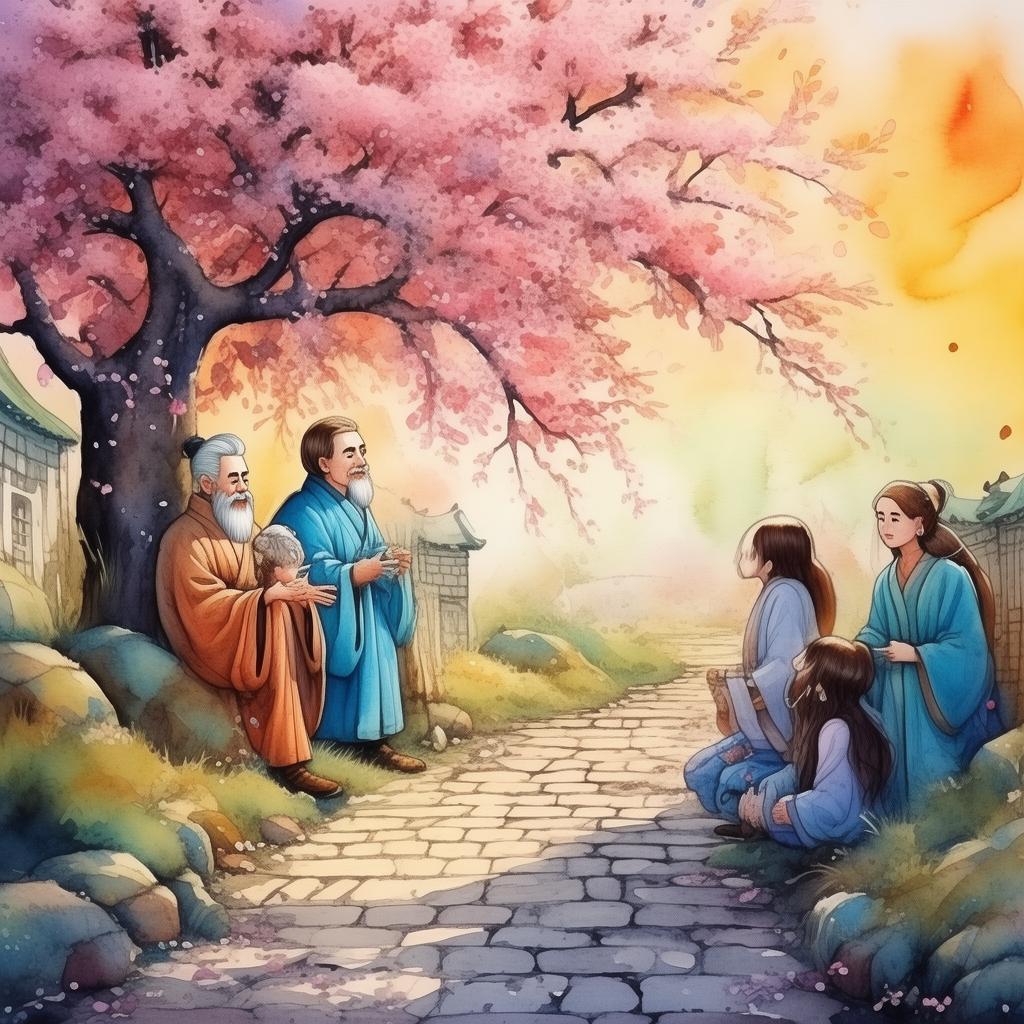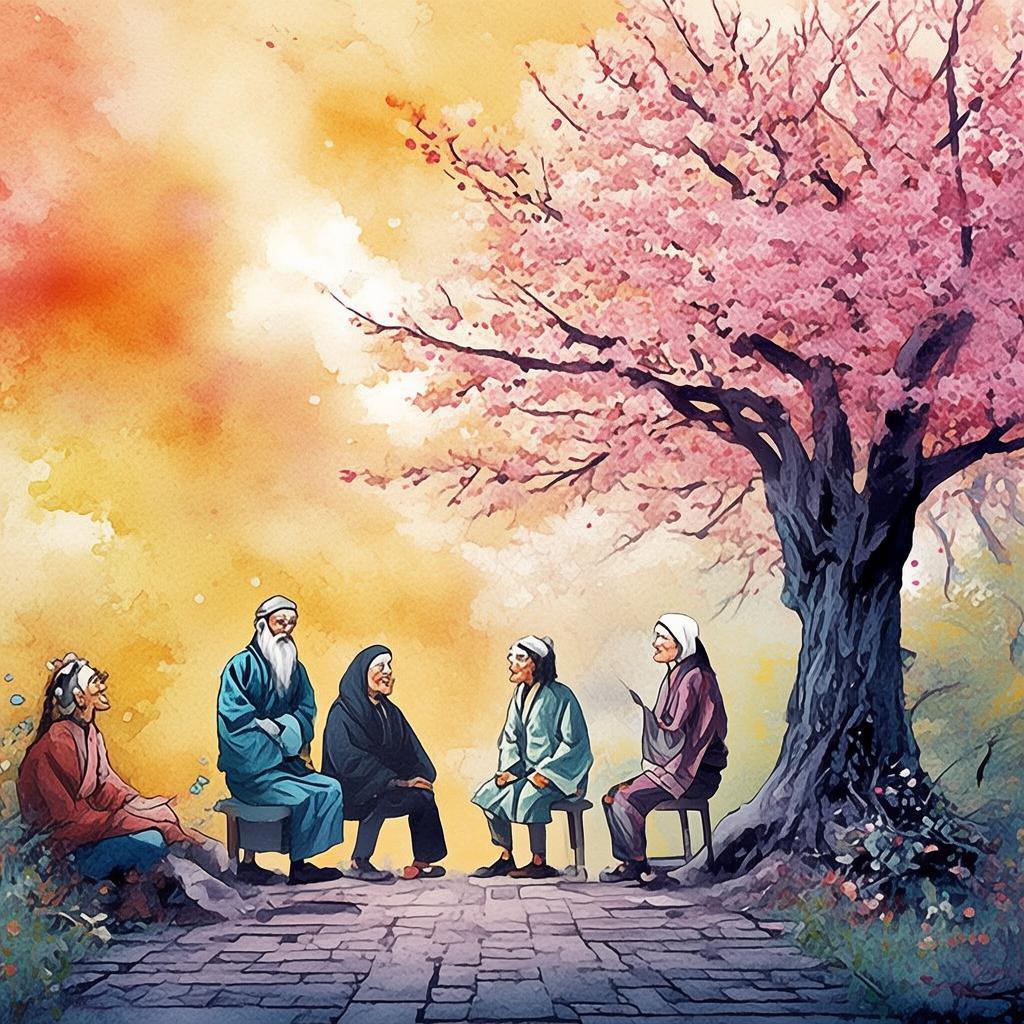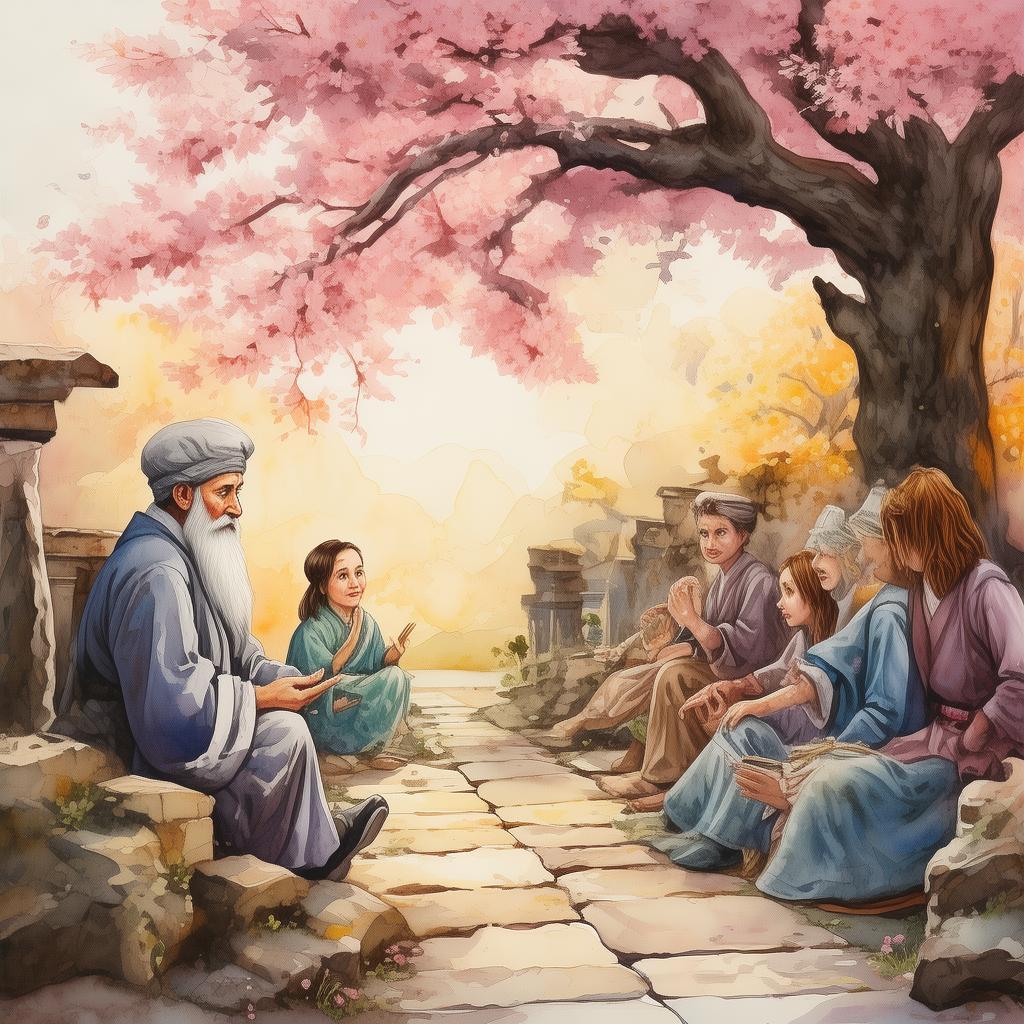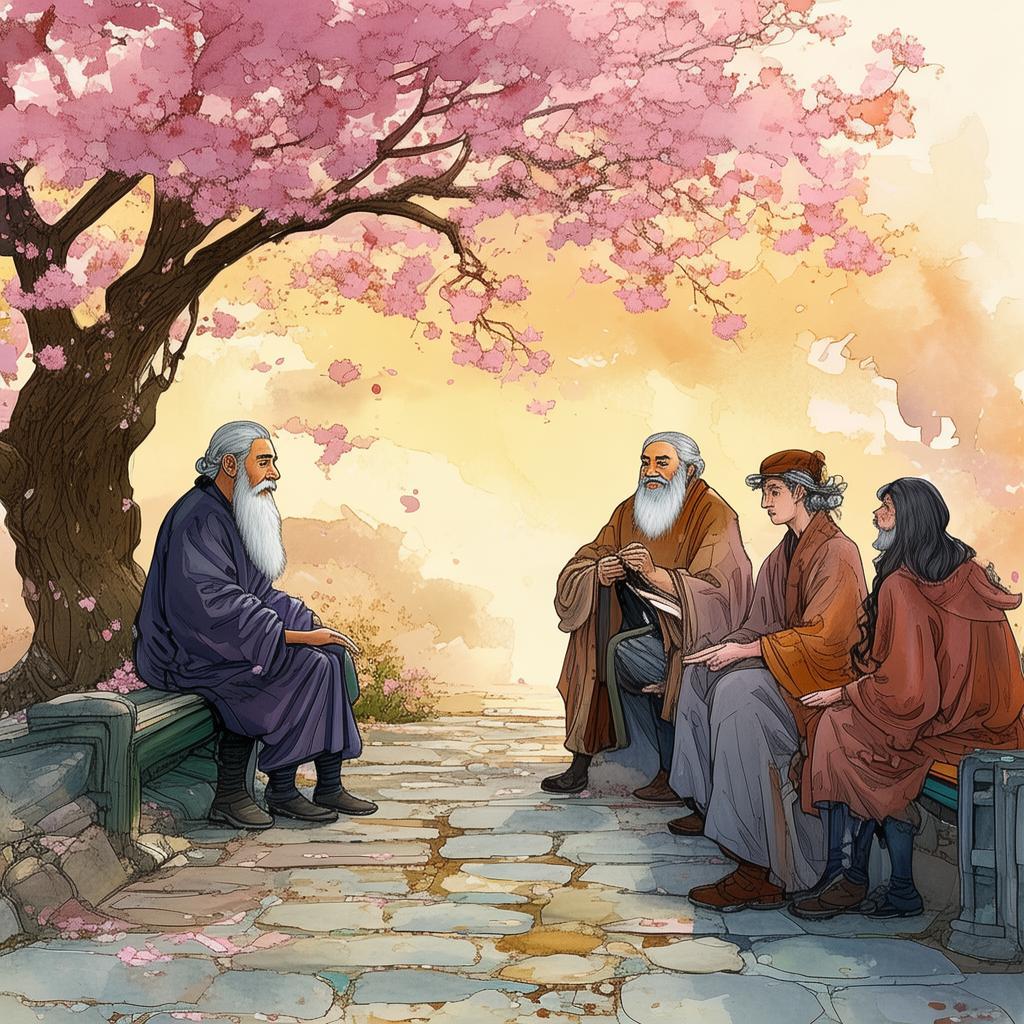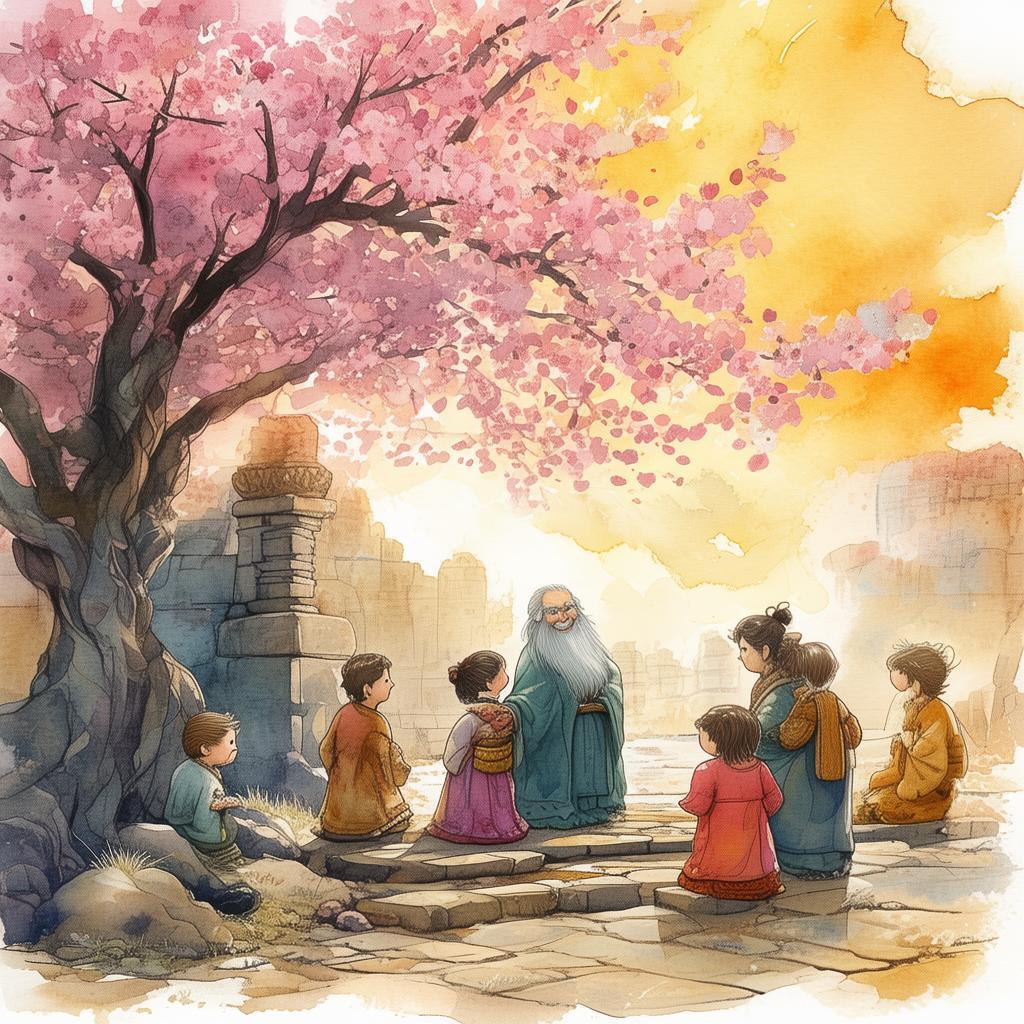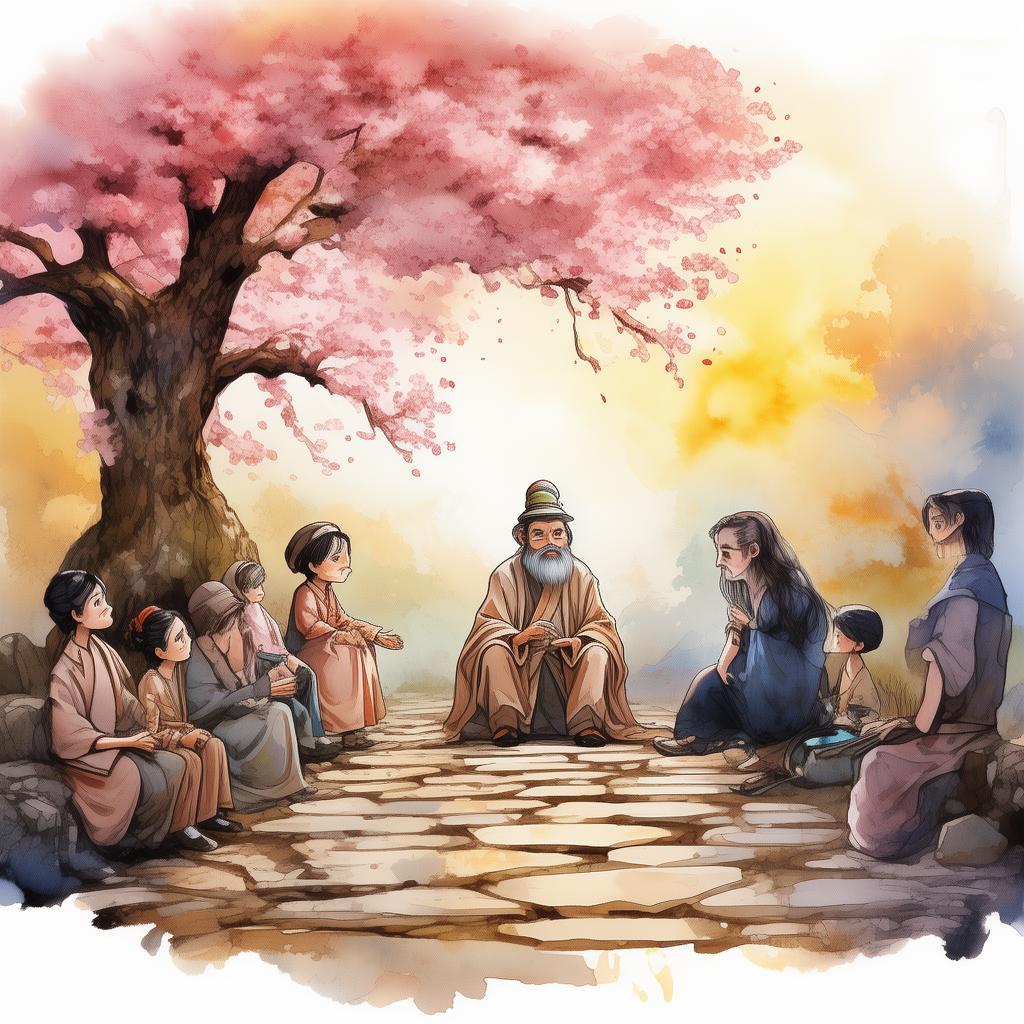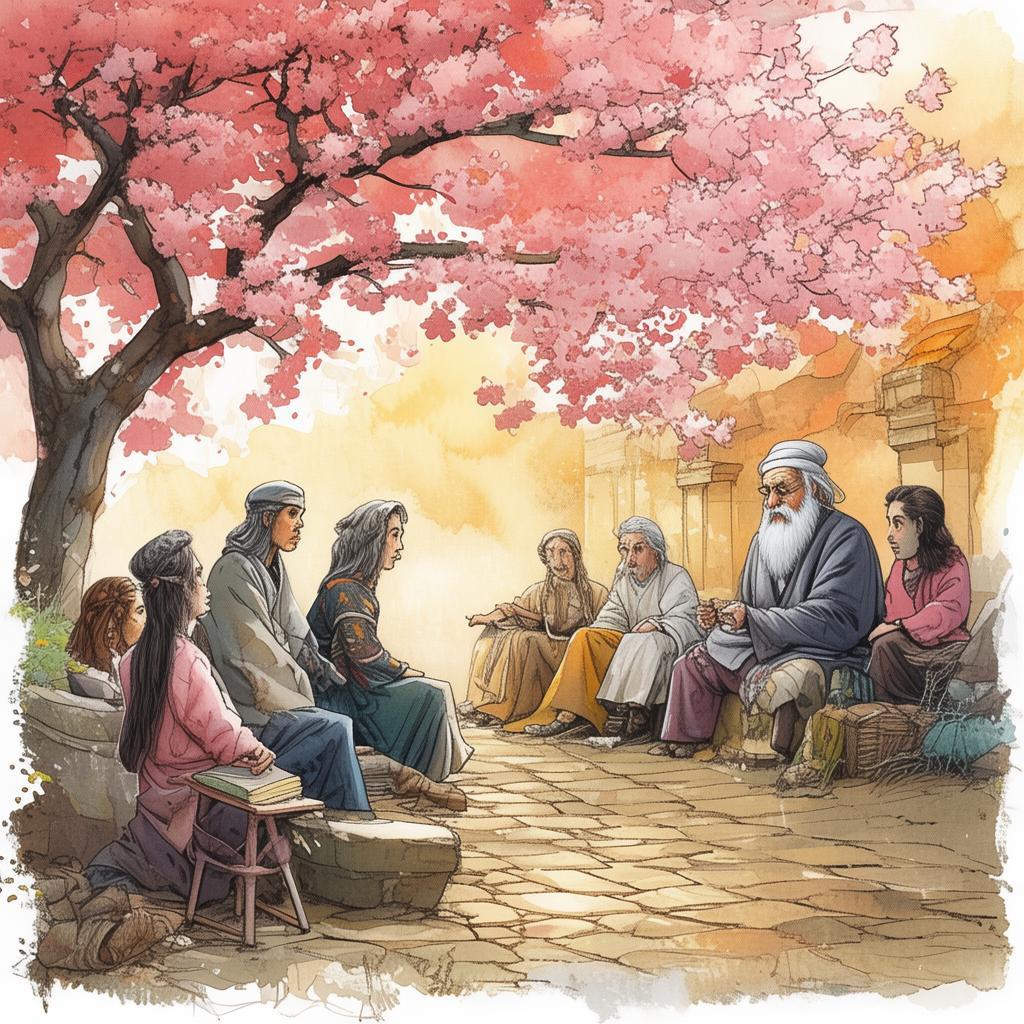The Dilemma of the Echoing Bamboo
In the serene village of Jingzhu, nestled amidst the lush mountains of ancient China, there lived a young musician named Qing. Qing was renowned for his mastery of the bamboo flute, a instrument with a sound so melodious it could make the trees sway and the streams sing. His flute was said to possess a soul, and the villagers believed that the melodies Qing played were not just the creation of his hands but the echoes of the distant past.
One day, while Qing was wandering in the forest, he stumbled upon an ancient, withered bamboo. It was unlike any bamboo he had ever seen, its hollow shaft resonating with an ethereal sound that seemed to call to him. Intrigued, Qing broke off a piece of the bamboo and began to fashion it into a flute. To his astonishment, the sound that emerged was unlike anything he had ever produced before. It was rich, deep, and filled with a haunting beauty that seemed to carry the weight of time itself.
As Qing played the flute, the villagers gathered around, their eyes wide with wonder. They listened in awe as the melodies seemed to echo through the ages, telling stories of love, loss, and the enduring human spirit. Qing knew then that this flute was no ordinary instrument; it was a connection to the past, a bridge between the world of men and the world of the ancient spirits.
The village elder, recognizing the significance of Qing's discovery, approached him and said, "You have touched the melodies of the distant past, Qing. This flute holds the power to travel through time. But with great power comes great responsibility. You must use this gift wisely, for it can bring joy, but it can also bring sorrow."
Intrigued by the elder's words, Qing began to experiment with the flute, learning to play melodies that were not his own but those of the ancient ancestors. He discovered that the more he played, the more he could see and hear the past. He could listen to the songs of warriors as they fought for their land, the lullabies of mothers to their children, and the prayers of the ancestors as they sought guidance from the spirits.
One evening, as Qing played a melancholic tune, he felt a presence beside him. It was a young woman named Li, who had come to the village to seek refuge from a life of servitude. Li had heard of Qing's flute and had come to hear the melodies of the distant past, hoping to find solace in the ancient songs.
As Qing played, Li closed her eyes and let the melodies wash over her. She felt a connection to the past, to the lives of the women who had once walked these mountains. She felt their strength and their resilience, and for a moment, she felt free.
But the freedom was short-lived. The village elder returned, his face stern. "Qing, you must use your gift wisely. The melodies of the distant past are not to be taken lightly. They can bring peace, but they can also bring war."
The elder then revealed that the melodies of the distant past had the power to influence the present. If Qing played the wrong melody, it could lead to chaos and destruction. The village had already seen the consequences of such a power in the distant past, and they could not afford to let it happen again.
Li, however, saw the power of the melodies differently. "But Qing, these melodies can also bring healing and hope. Why must we fear what we do not understand?"
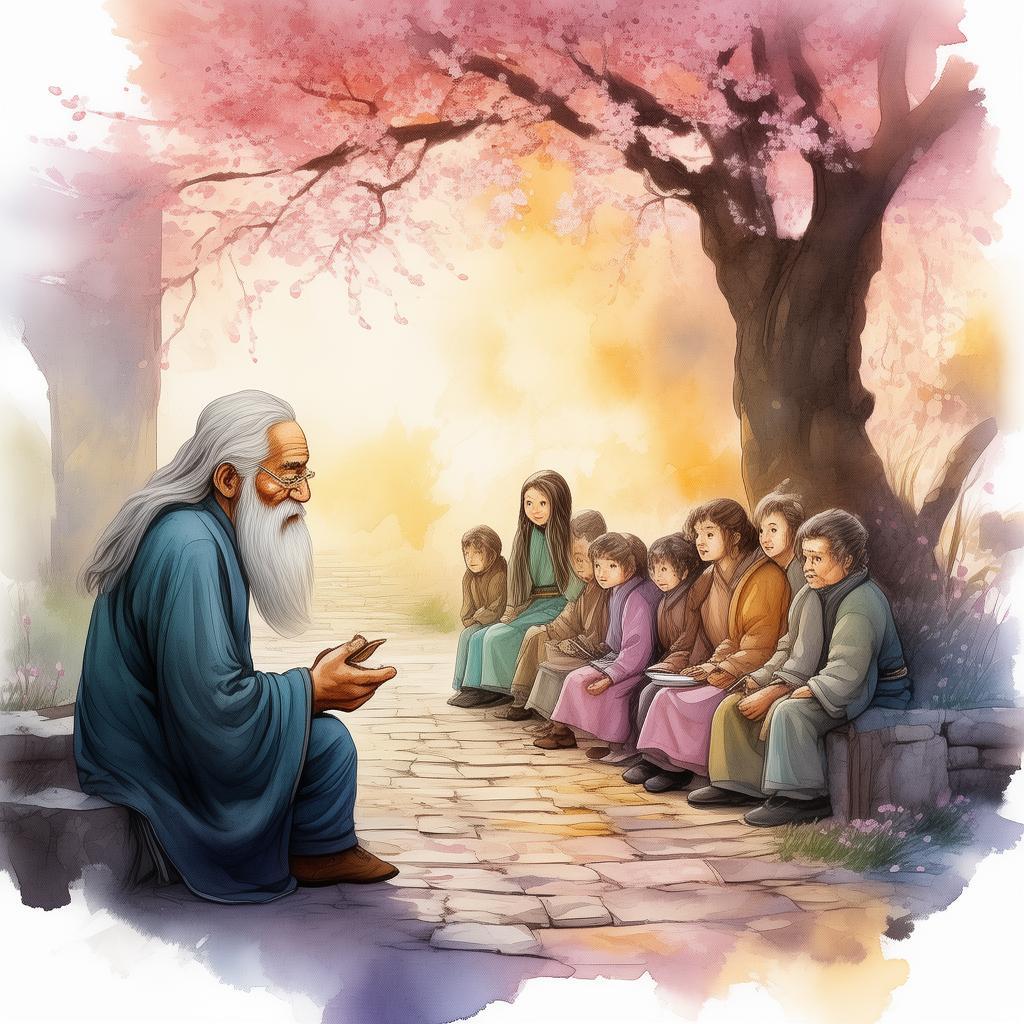
The elder's eyes softened, but his resolve did not waver. "We must be cautious, Li. The melodies of the distant past are a double-edged sword."
Torn between the elder's wisdom and Li's hope, Qing found himself in a dilemma. He knew that he could not control the melodies of the past, but he also knew that the power within the flute was a gift that could bring great joy to those who needed it.
One night, as Qing played the flute, he felt a presence beside him once more. It was Li, her eyes filled with determination. "Qing, I believe in the power of the melodies. I believe they can bring healing and hope to our world."
Qing looked at Li and felt a surge of emotion. He had always believed in the power of music to heal, to bring people together. But he also knew the weight of the responsibility that came with the flute's power.
With a deep breath, Qing played a melody that was both ancient and new, a melody that combined the strength of the past with the hope of the future. The sound filled the village, and as it did, Qing felt a connection to the past, to the present, and to the future.
The elder listened in silence, his face a mixture of awe and relief. Li smiled, tears in her eyes, as she felt the power of the melodies course through her.
And so, Qing continued to play the melodies of the distant past, but he did so with a new understanding, a new purpose. He played to heal, to bring hope, and to remind everyone that the past, the present, and the future were all connected by the power of music and the melodies of the distant past.
As the days passed, the village of Jingzhu flourished. The melodies of the distant past brought harmony and peace, and the people of the village began to see the world in a new light. They realized that the past was not just a distant memory but a part of their present and their future.
And so, Qing's flute became more than just an instrument; it became a symbol of hope, a reminder that even in the darkest of times, the melodies of the distant past could bring light and healing.
✨ Original Statement ✨
All articles published on this website (including but not limited to text, images, videos, and other content) are original or authorized for reposting and are protected by relevant laws. Without the explicit written permission of this website, no individual or organization may copy, modify, repost, or use the content for commercial purposes.
If you need to quote or cooperate, please contact this site for authorization. We reserve the right to pursue legal responsibility for any unauthorized use.
Hereby declared.
